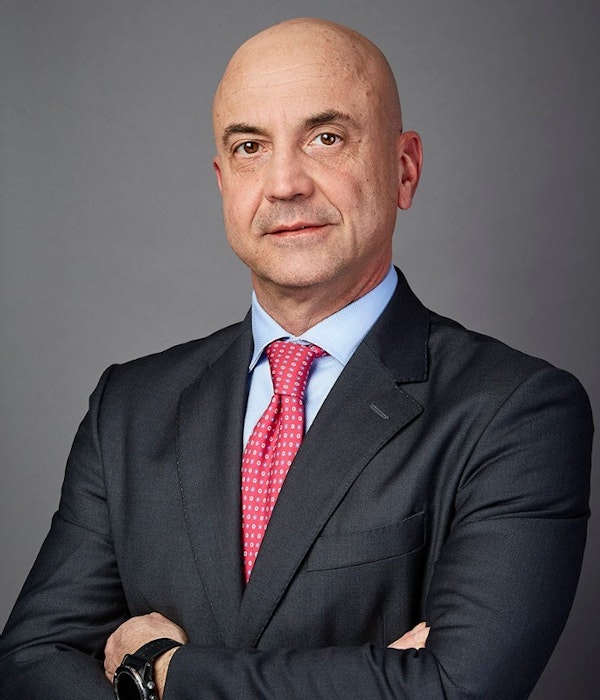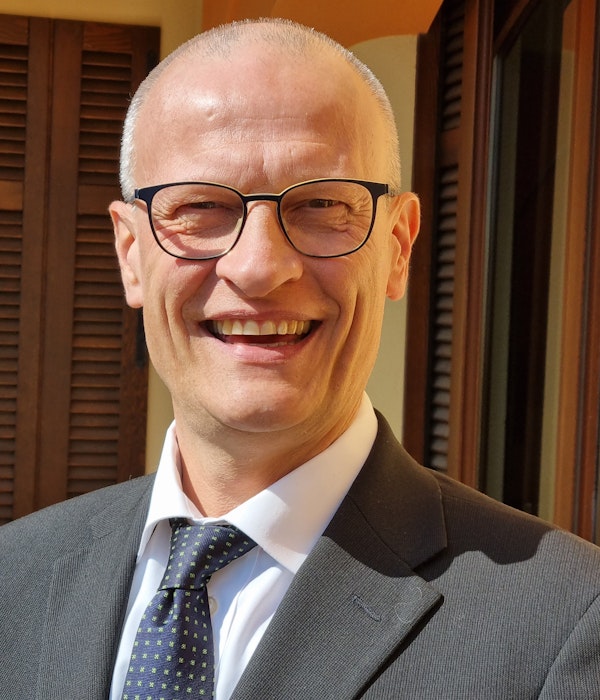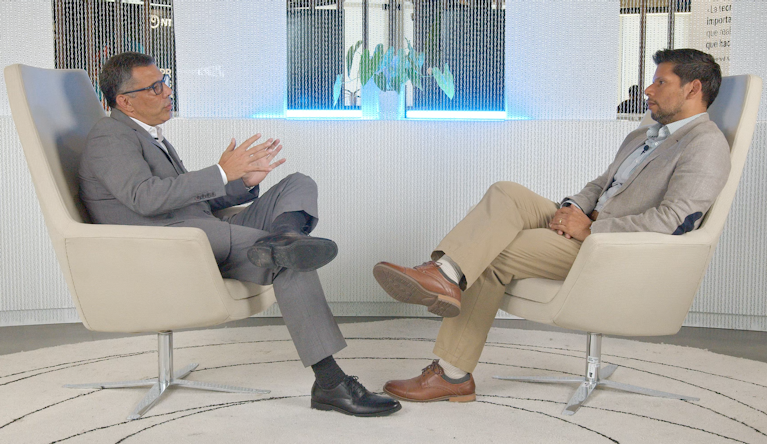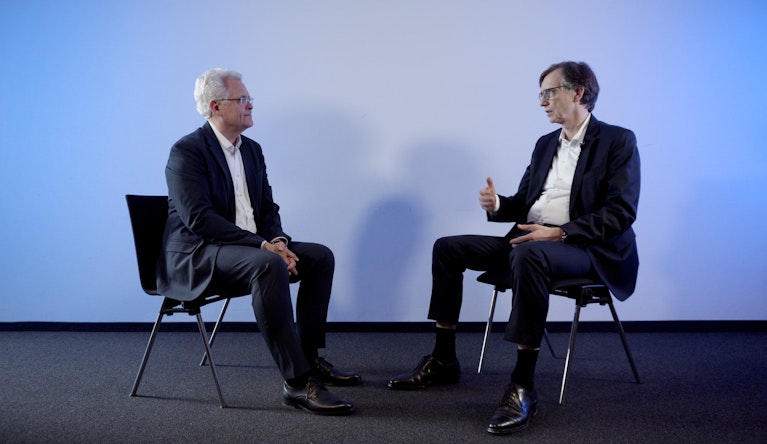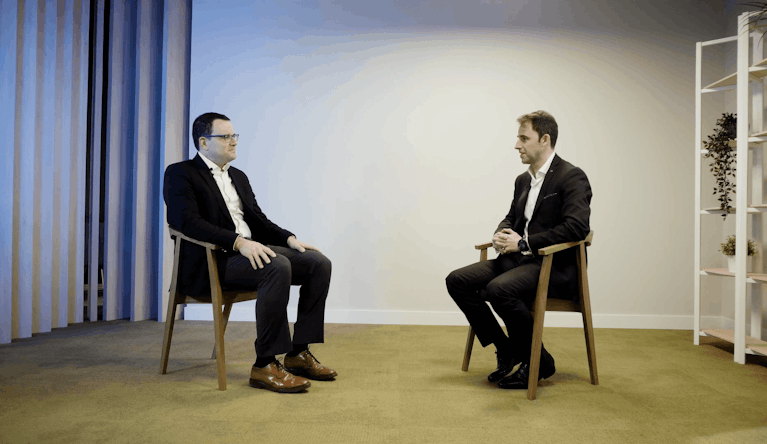Unipol's Beyond Insurance: Going a Step Further through Ecosystems
Guido Proietti, Insurance Senior Director at NTT DATA, and Giacomo Lovati, Chief Beyond Insurance Officer at UnipolSai Assicurazioni Spa, exchange their thoughts on new perspectives and possibilities around the Insurance industry ecosystem. They also address how to apply these innovative approaches to traditional models to become more competitive through new market dynamics.
Speakers
Giacomo Lovati
Chief Beyond Insurance Officer at UnipolSai Assicurazioni Spa
Guido Proietti
Insurance Senior Director
Transcription
Welcome to this new Insurance Dialog. Today we have the pleasure of welcoming Giacomo Lovati, Chief Beyond Insurance Officer of the Unipol group. Thanks Giacomo. So, to begin with, I wanted to understand what "Beyond Insurance" means for Unipol and how this idea of defining an offer other than insurance in these areas was born.
So, let's say that the concept of Beyond Insurance has developed for us in recent years because it is not new. It is an idea that was born in the past, which has obviously had its evolution and comes from a concept that consists in thinking about what an insurance company could be in ten years, in 15 years, considering that the insurance market is not easy at all, especially if we look at the car market, we do not expect to be a market in perennial growth.
Indeed, probably more than pink unicorns we see black clouds. So the issue is whether we want to continue to be a profitable company, work for the shareholders, etc. We necessarily have to think about enriching our offer and therefore we have launched the so-called Beyond Insurance. Why Beyond Insurance? In any case, it is important that there is the concept of insurance because a company like ours cannot suddenly start selling refrigerators because it does not have credibility on the market.
So we started about fifteen years ago with what we called the onion model, i.e. starting from the center which is in any case our insurance DNA, we began to add layers that were consistent with the insurance world and above all consistent with the trust that customers have in us. So obviously we started from mobility. 15 years ago we basically invented insurance telematics by launching the first insurance product with a technological device and so this was the first step.
Today we have more than 4 million black boxes installed. But that was, let me tell you, the first step because from that we started to handle data and understand behaviors and therefore we developed a further offer path related to mobility in that case but which then expanded, then maybe (we'll talk about it), also to other ecosystems, precisely to enrich our offer of contents that are not only purely insurance, which can be included in the insurance bundle, but which can also have a very strong stand-alone value.
And in fact, as you said, Unipol was ahead of its time with the black boxes, it was ahead of its time and then led the market. All other companies, then there are somehow adequate after. Also on Beyond Insurance, it seems to see a before of Unipol and an after of Unipol. Will there be a market dynamic similar to that of black boxes?
I'm talking about the Italian market.
So, we believe that the world of black boxes has reached an important maturity in Italy. What there is to understand, and it is still not very clear what the evolution of telematics could be, because obviously, the car manufacturers came into play on this game table, obviously with the connected car, etc., and all the related issues to smartphones. So, the question is to understand what evolution there will be of telematics?
More and more we believe there will be a hybridization between the classic black box set up by the insurer, the original equipment, and the smartphone. So this is a dynamic that sees further growth in the market, but which from our point of view has already reached excellent maturity. Where instead we see large spaces for a company like ours, therefore the insurance sector, are other types of services connected to mobility, mainly the car, the car itself.
We were the first, also, in this case, three years ago, to make a very simple reasoning, we have 2500 insurance agents. Fortunately, we have a very high customer retention rate, which means that our agents have customers in their portfolios with whom they have been talking about cars for twenty years and perhaps have helped them in the past to choose the best model "The Punto is better than the that the Panda?” because the relationship between customers is warm and passionate and so we thought why not offer the sale of cars through our agency network?
And it was a sales success. I say "sale", in reality, we operate with the concept of long-term rental, as we are convinced that there is an undoubted passage, it seems trivial, we always say it, but it is so, from owning an object to using it same. And that's how it is for cars, it's an inevitable trend. And electricity will push it even further.
Because the electric was born electively for long-term rental. Then whether the renter has little pleasure is another matter, however, taking a step back we acquired a company, acquired Car Server which three years ago had 38,000 vehicles in its fleet, today we have 130,000, the agency channel is selling a number of extraordinary of cars. And we are the first Italian player.
Let me say, truly multi-channel because today we distribute with the classic corporate channel, the rental car and the company car in everyone's head. So direct channel on big corporate, we have an agency network that is very strong on the private sector which is growing even if it is still small in terms of segment, but above all on small and medium enterprises. Our agents insure companies that have maybe three cars. At no cost.
I enter a segment that other competitors would pay more in terms of building ad hoc networks. And this is very important. Last, but not least, thanks to the operation we carried out with BPER and its company “Sifà”, which we integrated (the merger of these two companies will be operational from 1 July) we are also opening up the banking channel which we believe may have, even here, an excellent potential, still not exploited in Italy, because the models have been wrong.
You can't think that a teller is selling a car, so you have to find a different reporting model with a specialist who then closes the sale, which we think we have quite clear. So today we have a company that in the next two years will be able to produce 30,000 corporate contracts, 20,000 with the agency network, 10,000 from the banking channel, and around 5,000 from direct digital.
So a company that has a potential of 60/65,000 contracts a year. Our goal is to aim for the podium of the long-term rental companies, as we always do because if we play, we play for the Champions League, not the Conference.
Certainly. We come abroad. Abroad there are no great examples like Unipol. There is someone, I can think of, for example, Savia of the Mapfre group who, however, is more linked to the world of health in the round, isn't it? Here, however, do you think the Unipol model will also develop abroad? That is, I see the Unipol model that is once again leading the way in Italy. There will also begin to be a similar trend abroad?
We see it enough. We see it, for example very strong in China with ping and is doing an amazing job on ecosystems. Strengthened by the fact that it, however, has investment skills and moves numbers that help her in this. There is an example, in my opinion very, very interesting, with which we also have excellent relations, we were yesterday in Madrid with them, Mutua Madrilena, a Spanish company that is very similar in approach to what Unipol is doing.
But if I have to tell you the truth, I see the insurance world is still a little slow on this. Today, if you were to ask me who could be a competitor in the mobility ecosystem rather than, perhaps I see more of a utility, I see an ENEL-X than an insurance company, because, at least as we interpret it, this model to make it work is alas it is necessary to invest.
And above all, even if it seems a bit self-sufficient in reasoning, having the assets at home that allow you to supply the ecosystem. Why? Because we see, for example, Generali is adopting a model much more oriented towards partnerships. We tried. The partnership is a weaker link, you struggle to oversee the development of the product offer and therefore often you don't unload the horses that you could unload.
Practical example: before launching into a long-term rental, we made a commercial partnership with the then-car server. It didn't work very well because the product wasn't what we wanted. After the takeover, everything changed within three months. Why? Because the product was made as we wanted. The insurance policy has been customized in a certain way.
We have leveraged our entire support network; therefore, we are of the opinion that when it comes to addressing an ecosystem, our strategy is to have in-house the assets of the pieces that matter most and that make the money and to use partnerships where money they do less. Back on mobility, we have a truly 360-degree offer, but we have internal policies, financing, iron, cars, and maintenance.
Those are the areas where money is made. We offer the rental of the electric scooter, but obviously we do it in partnership because the margin that creates it is marginal. But it must be done. So we mix our offer using, let me use a not very nice term, partnership, but above all in things where we are less capable and above all where there is less margins and less value.
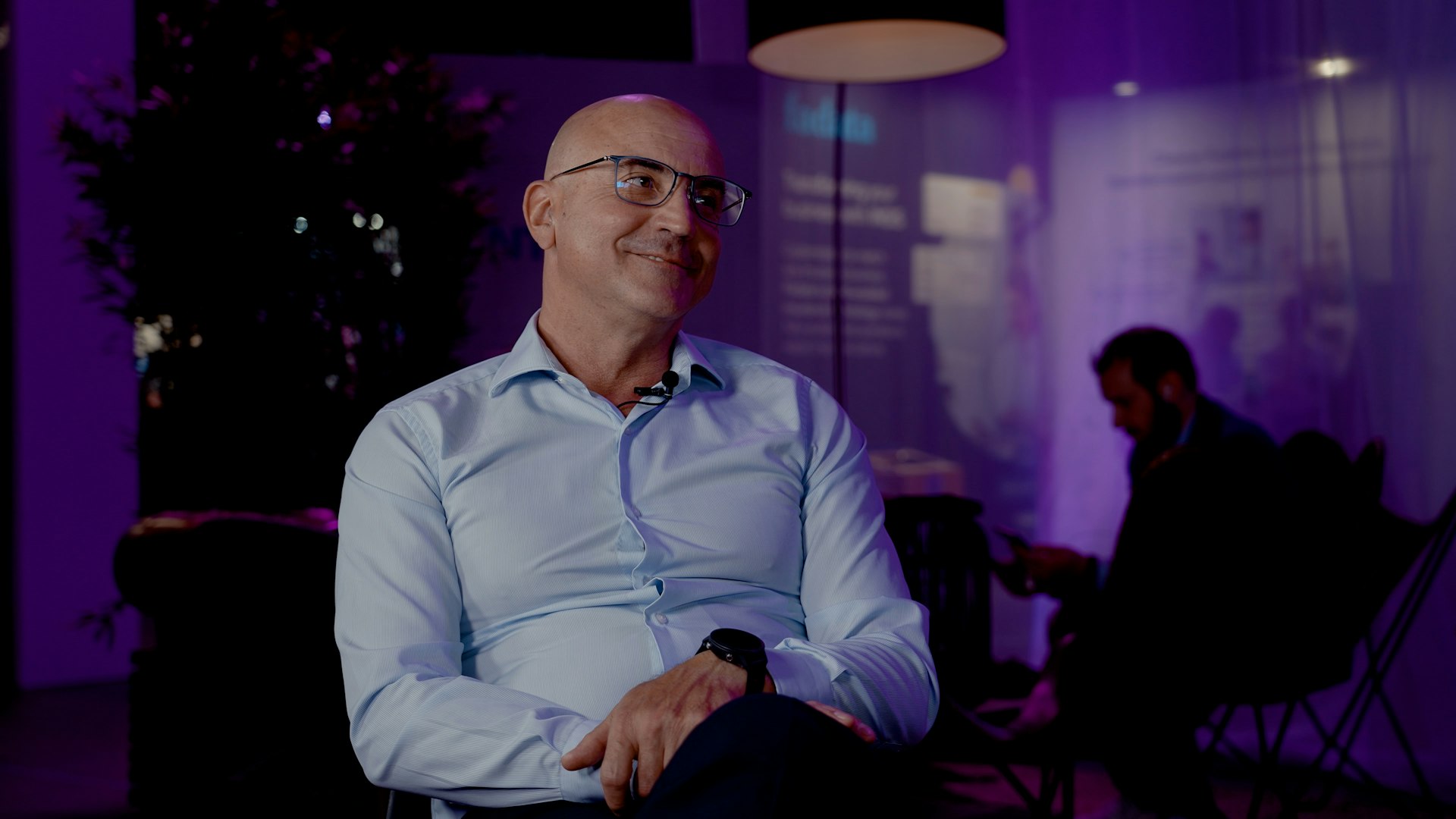
Sure, very clear. Here, among other things, you already mentioned it a bit. There are various models. Unipol wants to become a leader, indeed it already is, it is already becoming, it is already a leader of ecosystems. On mobility then it really is in a very, very strong way. Well, a model like being part of an ecosystem not having proprietary assets certainly generates the problems you mentioned.
However, could it not generate some benefit? In the sense that changing partners very quickly, changing the model, changing the offer becomes faster.
It is certainly an accelerator, but in fact when we face a new initiative or a new idea, first of all, we ask ourselves “why Unipol has to do this?” This seems like a trivial question but it's not so trivial. And above all if the answers are because Unipol has investment capacity or because it has customers, they are not satisfactory answers. That is, there must be a basic rationale for which that initiative can be a customer acquisition cost, less internal synergies of a certain type.
If there are these aspects, then we decide to do something. When there's a green light on doing something. The second question arises how do I do it? Do I do it with an internal start-up? We have created Unipol Tech from scratch for the management of black boxes, rather than, therefore, a sort of internal start-up. Or a 100% takeover. In this case, we have it because it already had a certain type of car fleet and for us, it was an accelerator and also a nucleus of skills that we do not have as insurers.
Or we do targeted M&A. We, for example, are of the opinion of not 100% acquiring a start-up. Never, because it doesn't make sense for us to imagine that we are a whale in a pond with a 100% start-up it goes to the founder, it goes to management, and we find in our hands an object that I find it hard to manage the accounts of home, let alone if I can manage an innovative start-up.
So, our idea is 70 - 30. We hold the founder and the management inside with the goal to say “I’ll make you great in 5 years when you will do exit, because if it is so, it means that we are even more happy with the goal always to say: “You are the specialist, you are able to do this job. One of the big problem with start-ups is that they don’t have customers… I give you them, and let you squeeze the Unipol sponge to create value through your business idea.
If this works after five years, then (if he wants to stay inside so much the better), but if he wants to leave then he will have a very rich exit but we are even happier because in that period we were also able to manage the company and then be able to continue it continuity. Then there is the last effect which shows partnerships, for example, we are distributing contracts, electricity, and gas through certain channels.
In that case the choice is to go towards a partner who, as you say, suits us, doesn't suit us, is easier to replace. Obviously partnerships bring joys and pains with them, because you certainly go to work with someone who knows how to do that job and who is already consolidated on the market that has the products. But on the other hand it may start to clash. The client is mine and we owe you.
And this is a huge taboo in Italy and there are privacy issues. How can I use your customer's information? So there are a series of non-trivial constraints that if in the best intentions they can be overcome, then the devil is in the details, you begin to lack the right collaboration and above all, let me tell you, the possibility of piloting the development of offers that you cannot pilot because I'm someone else's, in short.
This has some importance.
Clear, it’s very clear, just as it is clear from what you say, that there are many, many elements in a world of ecosystems that generate data in all ways. The amount of data, (apart that the insurance company …..)
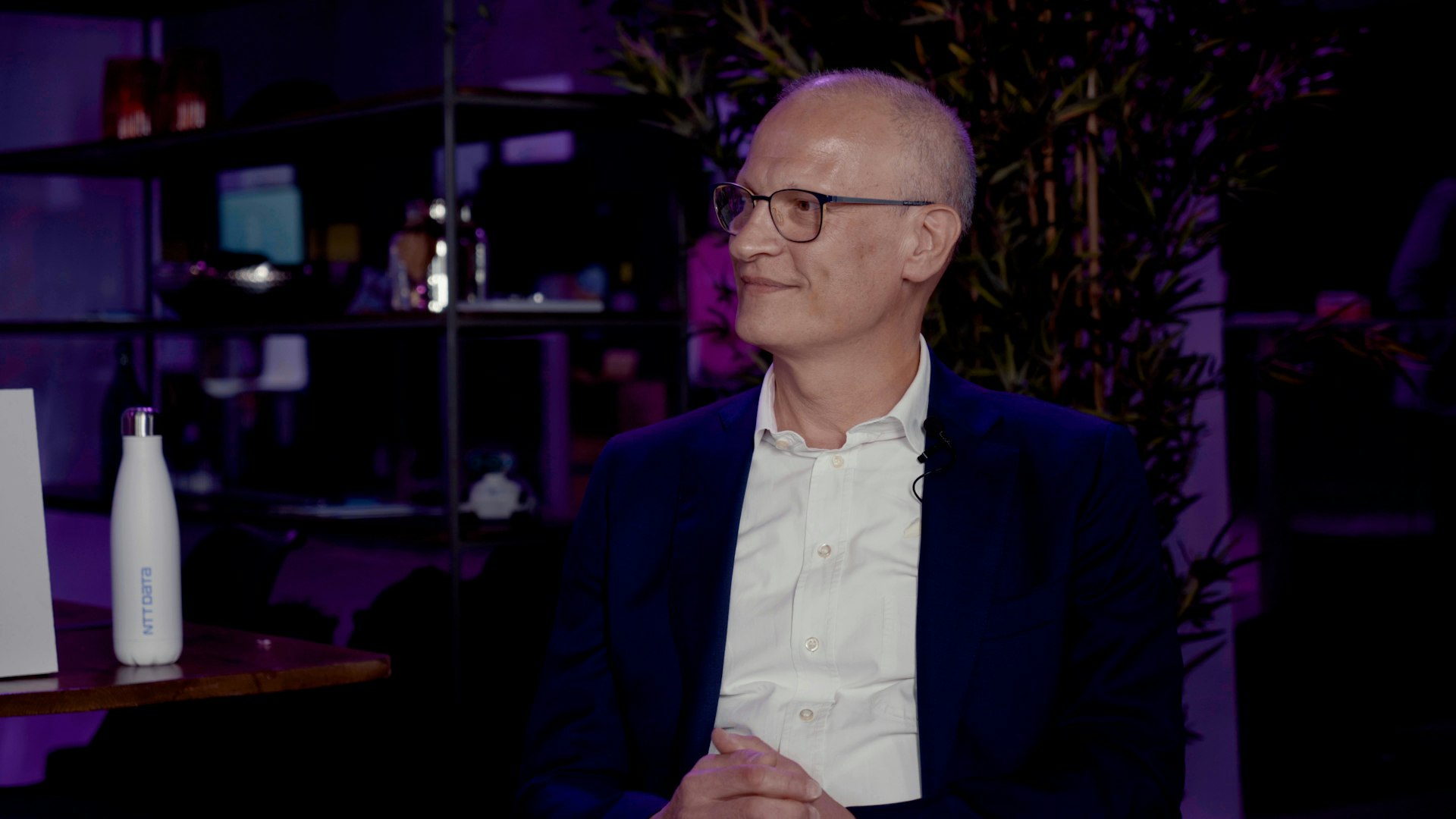
As I said before, they are forerunners of big data because we have been making car rates for 60 years with a mole of numbers... Even very refined. Today...
Absolutely yes. However, we hear instead of data-driven insurance which is somewhat connected to the theme of artificial intelligence. I wanted to understand: according to you and there will be new templates enabled by this theme here. So, there is an insurance issue, beyond insurance, data generation, I have a lot of data to manage very well, so I become a “data-driven insurance”. What does it mean maybe you will tell us, but I have to generate a business model because otherwise, it's just a different way to do the same things.
Very vulgarly, I say a shitty product is a shitty product, even if it has a fantastic user experience, the business model, and the product - sorry but when it takes it takes - So the product is key. The underlying business idea remains fundamental. Then obviously it is no longer sufficient because it is because today user experience is already a product and therefore it is necessary to think of it in a certain way.
And actually the data then we don't even need to exaggerate because now we live on buzz-word. The data-driven company is true, but we always try to have... - we have to have practical and common sense - But even starting from small things there is a terrain to be explored within companies, already with what is in the house, we exploit our data very little, there is no need, then we will arrive at systems, but already with what is in the house you can make a difference.
Let me give you a very trivial example: we started with tolling, and we broke the monopoly because for 33 years you couldn't enter Italy. Now you can, even if there are still breaks, constraints, etc. In just over a year we have almost 600,000 customers, so it's a good market entry. But we also went here because of Unipol? Because, trivially we, with our black box customers...
I can tell Guido Proietti then how many times a year he goes on the motorway when he goes there how he goes. Whether it has the competitor's device or not. Because I trivially realize that if it passes at 50 per hour under a counter or stops, it's paying with coins rather than already having a device. This is not making hyper-refined algorithms, but it has allowed us to provide our agents with customer lists by saying to Guido Proietti, suggest it.
Because a highway user, not to waste time with Giacomo Lovati because in the last five years he has never gone on the highway, so you will waste time. So this is a small example, as well as the study of the behavior of our car ownership customers (we have customers who have been in our portfolio for twenty years), so we know exactly which models they prefer, how often they change it, which they use and they do, they prefer the station-wagon...
This allows us, with Unipol Rental, to define much more targeted proposals. Last, but not least, and this one is already a little more refined, is the topic of electric transport. We, precisely, with our data from the black boxes, carry out very punctual analysis activities. And this tells us that, for example, the so-called Rengen Scientist, i.e. the fear that the car charge is not enough for me, here is 48% of our customers, 48% (!) in the last five years have never moved more than 300 kilometers, the 40, so half of our 10 million car customers could switch to electric.
Tomorrow morning.
It's a non-existent fear.
It's a non-existent fear. Then, obviously, these laws allow us to say who instead makes three trips a year, rather than who, and this has allowed us to launch very well-customized products with Unipol Rental. That is, I come to your house, I install the charging station for you, I give you the rental car, I also give you a certain number of kilowatts per month because they are the ones it emits on average and rather than a product that we have called an upgrade that gives you four weekends a year, where we give you a thermal car because maybe you use electric to drive 50 kilometers but on the weekend you go to visit relatives on the other side of Italy.
On that weekend I'll give you a car of the same level, but with a heat engine. Here it is again. Then we often take ourselves a little too seriously. It's not sending kids to the moon. However, this is making common sense use of the data that before even going to invent who knows what... One of the most successful algorithms for us was: they stole your car, I'm selling you Unipol Rental, so imagine.
How refined is this algorithm?
This allows you to have the customer very frequently on hand.
Yes the goal is to create a cocoon around who.
It needs you.
If he feels good and has everything from me, why should he go to competitor ? Last but not least, it is one of the most important things that we see especially in the digital world: if I talk about mobility today, I arrive in Milan, I download twelve apps, I download the Lime, Circle, Helbiz, Enjoy, ATM, Taxi.it, Frecciarossa, etc.
With seven apps I can move you well. We have created an app that integrates everyone, therefore single sign-on, single payment instrument, monthly billing. And this is still a value because it is a bit of the success that policy aggregators have achieved. Why on earth do I have to get an estimate by going to seven sites and entering the same information seven times? When can I do it once and get 1 in 10?
This is the reasoning, hence the convenience of having everything in one place. Obviously, if the services provided again, as you said, part starting directly from us, part from partner. If I am satisfied, I enter an object and I never have to leave it again. Well, this is a bit…. again, it's not the strategy, let's take ourselves a little less seriously, let's not operate with an heart opened, but ...
But there is also the convenience of daily life. Certainly, as I said before, this thing is not over for Unipol, Unipol is moving forward and will continue in the future. In general, in the future all companies will have to change, they will have to evolve in some way. There are all the technological and cultural innovations on mobility and health, also on the property, sure...
But health is another of the topics, obviously very heartfelt. What do you think we can expect from the future. Will there be still different models?
So can I tell you a little bit about what we're trying to do, which obviously should be what we expect to happen on the market .. (No, because) ... then, we in the automotive world have managed over time to truly create a mobility ecosystem with its own concept of giving overall value to the customer. Trivial examples: I won't reimburse you for the accident, I'll repair the car with original parts and I'll repair the crystal.
Therefore, we have tried over time to move from cash dispensers, i.e. ATMs, "you have a claim, I'll send you a check", to someone who really solves your problem instead of reimbursing it. We also try to do the same with regard to health, basically because, again, we always try to create models, because it is Unipol, because Unisalute has 10 million health customers and every year, if I remember correctly, it spends 90 million euros on blood tests because they are included in the UniSalute policies. So, very simply, why Unipol? Because it's better that our company makes those 90 million rather than giving it a competitor. So we have to be born efficient on the market, but we have the big help of having a booster from the captive world that allows us to break even very quickly.
Then the turnover will be only 20% from the insurance world, 80% will be due to public spending by Italians. But that's a great advantage. And so for us the goal is to get to try and build the so-called "Health management organization", in the United States they say Permanent Kaiser, an excellent example that is a bit what we do with the car: we repair the car.
We'll “repair” Christians as well - let me use a term that… - Well, we as insurers have to move from reimbursers to providers of services. In health, it is worth a lot. So the possibility of saying you're insured with me, come to me and I'll do your exams and so on. Because then prevention also means fewer accidents. I'll give you another example. We are making very concrete reasoning to enter the world of so-called senior protection.
Today you and I are starting to no longer be kids, they classify us as Silver. This thing is terrible. And yet more and more we get there by touching iron in good health. The over 70s have a very high spending capacity because they are still the boomers who have pensions of a certain type and in any case assets of a certain type.
They are fine, they want to live well. Paradoxically they are no longer insurable. A septuagenarian. And then you can't think about that person's well-being as an insurer, but you have to give him paid services obviously, with different formulas. So, it is therefore not to move from the insurer, even to being a direct lender. So we're really thinking about the topic of travel for seniors, which is an exploding segment.
We say the whole theme of Well Aging, that is, ageing, aging well, therefore wellness and therefore prevention. So moments of aggregation. In short, there are many things to do, but you can do those not as an insurer, because it is paradoxical, but he is no longer an insurable subject for insurance. So this shift from insurer to provider of benefits I think the big companies have to face with.
This will probably be the future.
Probably yes.
Giacomo. I thank you very much, it was really a pleasure for me. Thank you again and invite all of you to listen to the next Insurance Dialogues. Thank you very much.
